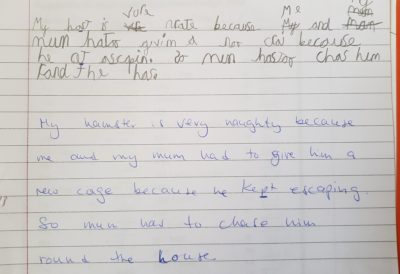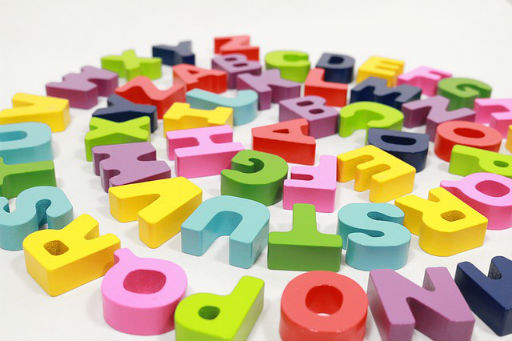Many children struggle with spelling. Is it important to teach them how to spell in the digital age when ‘Spell Check’ is there to help?
The answer is ‘yes’. Why?
Firstly, because at present Spell Check makes errors, as do voice recognition tools. Spell check may offer homophone or spelling options – but can students choose the right one? Spell Check is not a fool-proof a solution.
Secondly, being a poor, self-conscious speller really hinders one’s ability to express oneself in writing. All too often, poor spellers limit the amount they write as they find it so difficult and limit their written vocabulary to words they can spell. See here, for example, a student who finds spelling very difficult and hates to write. She agreed to write only a few sentences:

This student in Year 4 is very chatty and articulate but hates writing because of her spelling. She had a great deal to say about her hamster but was only willing to produce three and a half lines on the page. She has loads of ideas for stories but will get very upset about having to write things down. This has become a recurring problem in school. It doesn’t help that the school sends home random spelling lists which she fails at weekly. What should be done?
There is a system to our writing script and we need to teach it.
Our spelling system is based on sounds of speech that are represented by symbols (letters) and we need to continue teaching this beyond the teaching of reading. The link between reading and spelling is often broken and children are no longer expected to sounds out words when they spell. In fact, either spelling isn’t really taught at all, or students are encouraged to memorise words by their shape as whole units – even if they have a number of syllables. That can’t be efficient! So we need to teach children about spelling sounds, syllables and morphemes. We need to teach them how words are built and how they can be deconstructed when they spell.
Here is what Dr Richard Selznick has to say about this on the Shutdownlearner.com blog.


